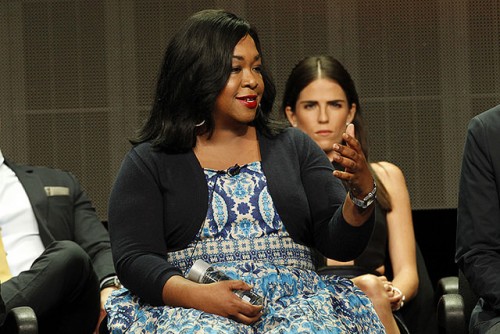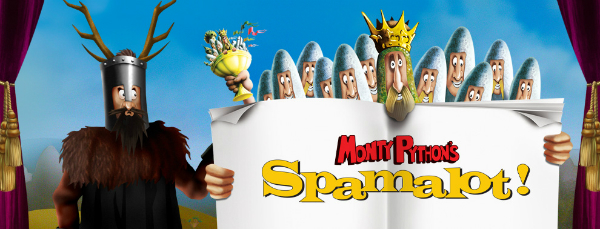
Some questions to consider: What constitutes a Black family in film or on television? Are representations of these families realistic or true to life? What are audiences who consume this media intended to understand about Blackness or the Black experience? What kinds of stories are allowed to be told and which are still suppressed?

Check out what we’ve been reading this week–and let us know what you’ve been reading/writing in the comments!

At best, the White Gaze can be challenged on Twitter (see: #lessclassicallybeautiful); at worst, it can get you killed (see: Michael Brown, Eric Garner, Ezell Ford, Renisha McBride, Trayvon Martin). And for black women, in particular, our complex experiences disappear in the crossroads of intersectional oppression. Where racism and sexism meet, we fall through the cracks.

Though ‘Spamalot’ doesn’t greatly improve on the number of significant roles for women, it does add a host of female background performers who appear frequently as well as the show-stealing Lady of the Lake (often dubbed the Diva of the Lake). Though she is primarily a love interest, the Lady of the Lake is also essential as she’s the equivalent of a dues ex machina who solves dilemmas the cast faces, puts them on the right path for their quest and generally inspires enthusiasm in the pursuit of the grail.

Working-class female protagonists remain rare, however. More often than not, working-class women play supporting roles as mothers, wives or lovers. Their characters are invariably underwritten or stereotypical.
# The 100 3rd Rock from the Sun 30 Rock 2 Broke Girls A Ackee & Saltfish Adventure Time Agent Carter Agents of S.H.I.E.L.D. Alias All-American Girl Ally McBeal Alphas American Crime American Horror Story American Horror Story: Asylum American Horror Story: Coven American Ninja Warrior The Americans Angel Anne of Green Gables Archer The … Continue reading “TV Directory”

On screen, we often see the demonization of women with professional power and/or ambition. These women are usually portrayed as callous, frigid (or conversely hyper-sexual), masculine, and even unnatural. These women tend to be fiercely competitive with other women in their field. All this tells viewers that women don’t belong in high-power positions.

It is, also, of course, essential that we see female characters make their own way in professions traditionally monopolized by men. They reflect social change as well as inspire. It is equally essential that women of power are portrayed on the big and small screen with greater frequency as well as with a greater degree of complexity. American films and television programs should not, however, block out the lives of working-class and poor women. So many stories, struggles, journeys and adventures, remain unacknowledged and untold. It is a strange and troubling thought that contemporary American audiences are simply unaccustomed to seeing interesting, strong and resourceful working-class women. Whether ordinary or extraordinary, working-class women of all races and backgrounds, need greater representation.

It’s rare to see people with disabilities onscreen. On top of that, films and television shows love to tell the stories of heterosexual white men, so it only makes sense that the most prominent characters with disabilities are heterosexual and white. We could create a long list of those representations in film and TV, but … Continue reading “Call for Writers: Representations of Women with Disabilities in Film and TV”

When we talk about motherhood and pregnancy in film and television, images of nurseries, strollers and rosy-cheeked cherubic newborns just might spring to mind. We may not think of the devastation of infertility, miscarriage or infant loss. Yet many people struggle with these hardships on their path to parenthood. It’s not that the media doesn’t … Continue reading “Call for Writers: Infertility, Miscarriage and Infant Loss in Film & Television Week”

Scandal Guest post written by Nakeesha Seneb, originally published at Structured Breakdown. Cross posted with permission. I think Shonda Rhimes, and her writing round table, are some of the most prolific storytellers of our times. Yes, I said prolific and I’m going to stand by such a big SAT word. Prolific actually means producing much … Continue reading “Women of Color in Film and TV: ‘Scandal’ Pilot: Loosen Up Your Buttons, Baby”

Scandal, created by Shonda Rimes and starring Kerry Washington Guest post written by Atima Omara-Alwala. Like every other woman of color who enjoys film and probably many film and TV critics alike, I waited with baited breath to see what the debut of Scandal, the first major network television show in nearly 40 years with … Continue reading “Women of Color in Film and TV: Mammy, Sapphire, or Jezebel, Olivia Pope is Not: A Review of ‘Scandal’”










